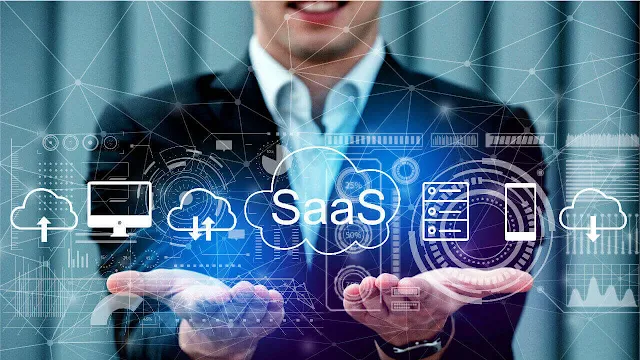In today's digital landscape, Software as a Service (SaaS) has revolutionized the way businesses operate, offering convenient and scalable solutions for various organizational needs. However, with the increasing reliance on cloud-based services comes the pressing need for robust security measures. SaaS security encompasses the strategies and protocols implemented to safeguard data and applications hosted on cloud-based platforms. It is crucial for businesses to prioritize SaaS security to mitigate risks and protect sensitive information from potential threats.
Understanding SaaS Security Risks
As businesses transition their operations to cloud-based environments, they are exposed to various security risks inherent in SaaS platforms. Data breaches pose a significant threat, with cybercriminals targeting sensitive information stored in the cloud. Additionally, unauthorized access to SaaS applications can compromise confidentiality and integrity, leading to potential data loss or manipulation. Compliance issues also arise concerning regulatory requirements, necessitating adherence to industry standards to ensure data protection and privacy.
Best Practices for SaaS Security
To enhance SaaS security posture, organizations must adopt proactive measures to mitigate risks effectively. Implementing strong authentication mechanisms, such as multi-factor authentication (MFA), can fortify access controls and prevent unauthorized entry into SaaS applications. Furthermore, encrypting data both in transit and at rest adds an extra layer of protection, rendering it unreadable to unauthorized parties. Regular audits and monitoring of SaaS environments enable organizations to detect and respond to security incidents promptly. Additionally, fostering a culture of security awareness through employee training and education empowers staff to recognize and address potential threats proactively.
Expert Panel Discussion
To gain deeper insights into best practices for SaaS security, we convened an expert panel comprising industry leaders and cybersecurity professionals. The panelists shared their expertise and recommendations on bolstering SaaS security measures to safeguard organizational assets effectively.
Introduction to Panelists
- Dr. Sarah Johnson - Cybersecurity Expert and Chief Information Security Officer (CISO) at a Fortune 500 company.
- John Smith - CEO of a leading cybersecurity firm specializing in cloud security solutions.
- Emily Chen - Senior Software Engineer with extensive experience in developing secure SaaS applications.
Questions on SaaS Security
- What are the most significant security challenges organizations face when adopting SaaS solutions?
- How can businesses ensure data confidentiality and integrity in cloud-based environments?
- What role does encryption play in enhancing SaaS security?
- How can organizations effectively manage access controls to prevent unauthorized access to SaaS applications?
- What strategies should businesses employ to stay compliant with regulatory requirements while leveraging SaaS platforms?
Insights and Recommendations
- Dr. Sarah Johnson emphasized the importance of implementing a comprehensive security framework that encompasses both technical controls and organizational policies.
- John Smith highlighted the need for continuous monitoring and threat intelligence to identify emerging security threats and vulnerabilities.
- Emily Chen stressed the significance of secure software development practices and regular security assessments to identify and remediate vulnerabilities in SaaS applications.
Conclusion
In conclusion, prioritizing SaaS security is paramount for organizations to protect sensitive data and mitigate cybersecurity risks effectively. By adopting best practices such as strong authentication, data encryption, and regular monitoring, businesses can fortify their defenses and uphold the integrity of their cloud-based operations.
FAQs
What is SaaS security? SaaS security refers to the strategies and measures implemented to protect data and applications hosted on cloud-based Software as a Service platforms.
Why is SaaS security important? SaaS security is essential for safeguarding sensitive information, mitigating cybersecurity risks, and ensuring compliance with regulatory requirements.
What are some common SaaS security risks? Common SaaS security risks include data breaches, unauthorized access, compliance issues, and vulnerabilities in cloud-based applications.
How can organizations enhance SaaS security? Organizations can enhance SaaS security by implementing strong authentication measures, encrypting data, conducting regular audits, and fostering a culture of security awareness among employees.
What are the benefits of consulting with cybersecurity experts for SaaS security? Consulting with cybersecurity experts provides organizations with valuable insights, recommendations, and best practices for strengthening SaaS security posture and mitigating potential threats effectively.




